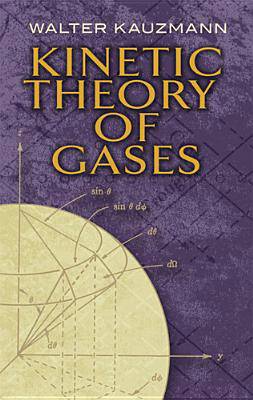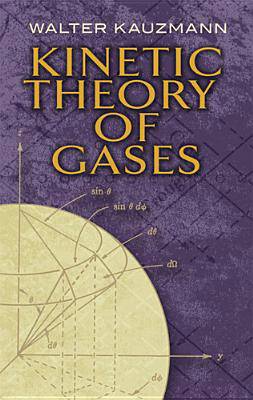
- Afhalen na 1 uur in een winkel met voorraad
- Gratis thuislevering in België vanaf € 30
- Ruim aanbod met 7 miljoen producten
- Afhalen na 1 uur in een winkel met voorraad
- Gratis thuislevering in België vanaf € 30
- Ruim aanbod met 7 miljoen producten
Zoeken
Omschrijving
Written by a former Princeton University professor specializing in the thermal properties of matter, this monograph and text was designed for first-year students of physical chemistry who require further details of kinetic theory. The treatment focuses chiefly on the molecular basis of important thermodynamic properties of gases, including pressure, temperature, and thermal energy. Extended and often quite elementary presentations of abstract basic concepts offer students the opportunity to grasp the essentials of modern physical chemistry. Thermodynamic and molecular theories of heat are developed side by side, so that thermodynamic theory is constantly illuminated and enhanced by molecular theory.
Topics include equations of state of gases and empirical gases, the molecular explanation of the equations of state, and the molecular theory of the thermal energy and heat capacity of a gas. Additional subjects include the distribution of molecular velocities in a gas as well as molecular collisions and the transport properties of gases. Numerous exercises, many of them partially worked out, help students internalize concepts and illustrate practical uses and special applications. End-of-chapter problems offer further reinforcement.
Topics include equations of state of gases and empirical gases, the molecular explanation of the equations of state, and the molecular theory of the thermal energy and heat capacity of a gas. Additional subjects include the distribution of molecular velocities in a gas as well as molecular collisions and the transport properties of gases. Numerous exercises, many of them partially worked out, help students internalize concepts and illustrate practical uses and special applications. End-of-chapter problems offer further reinforcement.
Specificaties
Betrokkenen
- Auteur(s):
- Uitgeverij:
Inhoud
- Aantal bladzijden:
- 272
- Taal:
- Engels
- Reeks:
Eigenschappen
- Productcode (EAN):
- 9780486488332
- Verschijningsdatum:
- 17/05/2012
- Uitvoering:
- Paperback
- Formaat:
- Trade paperback (VS)
- Afmetingen:
- 135 mm x 211 mm
- Gewicht:
- 276 g

Alleen bij Standaard Boekhandel
Beoordelingen
We publiceren alleen reviews die voldoen aan de voorwaarden voor reviews. Bekijk onze voorwaarden voor reviews.











